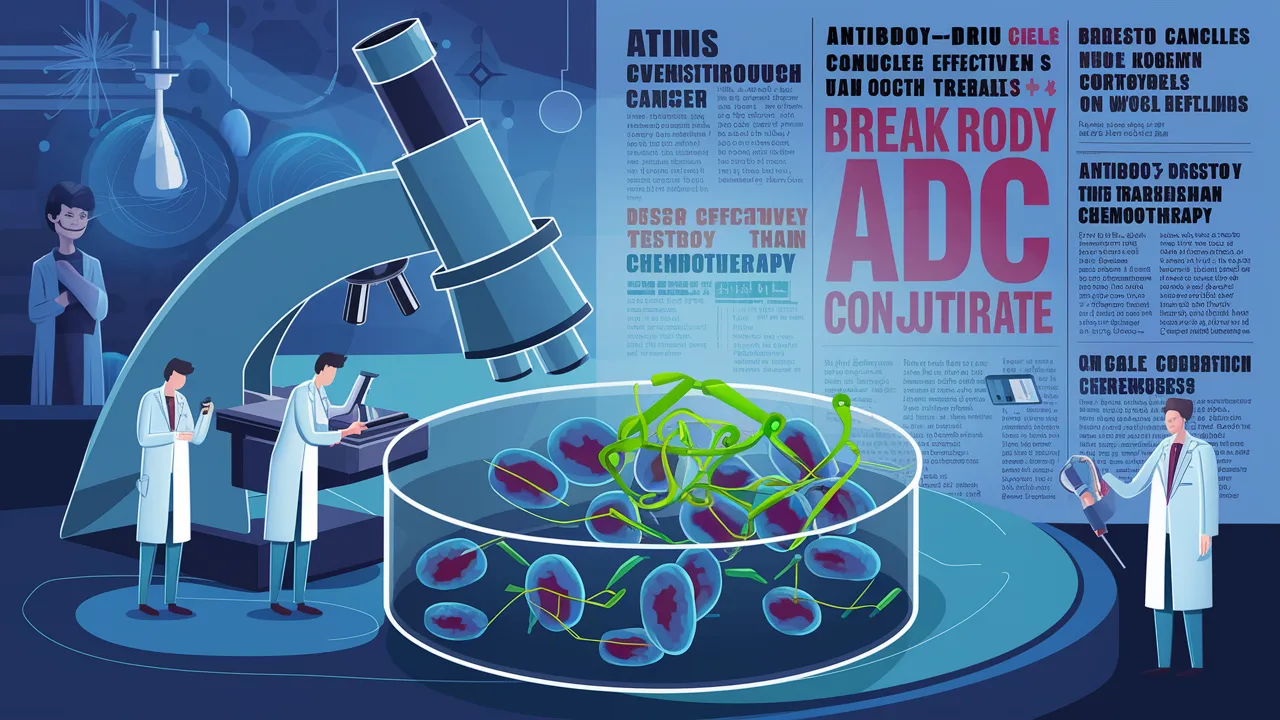About two years back, Enhertu, a medication, reshaped doctor’s approach to a hostile type of breast cancer. It highlighted the importance of understanding not only the presence of the HER2 protein in patients’ tumors but also the extent of it. Recently, a study shared at the American Society of Clinical Oncology could help in redefining breast cancer treatment. The research indicates that Enhertu, classified as an antibody-drug conjugate, can potentially be more beneficial if used before chemotherapy in a prevailing type of advanced breast cancer. It could also lead to a new categorization for breast tumors having “ultralow” but still traceable, levels of the HER2 protein. In a trial involving 866 people with metastatic, hormone receptor-positive breast tumors exhibiting either
“low” or “ultralow” HER2 expression, Enhertu was tested against a chemotherapy selected by the doctors. The participants had already been given one hormone therapy and a type of medication known as the CDK 4/6 inhibitor, or had undergone two prior hormone therapies. The creators of Enhertu, AstraZeneca and Daiichi Sankyo, mentioned that the trial was successful but didn’t provide specific results earlier in April. Data from the trial displayed at ASCO showed Enhertu met its main goal by prolonging cancer progression or death by an average of about 13 months,
compared to near eight months for chemotherapy patients. This demonstrated a 38% decrease in the possibility of cancer progression for Enhertu users. Adrienne Waks, Dana-Farber Cancer Institute’s associate director of breast oncology clinical research called this a notable difference. Even though Waks didn’t participate in the trial, she has served as a consultant for AstraZeneca. Similar results were seen among the fewer participants with ultralow HER2 levels, pointing to a parallel five-month difference in comparison to chemotherapy in progression-free survival terms. While the study wasn’t designed to observe a statistical difference on this criterion, professionals conversed with by BioPharma Dive deemed the results convincing.
Rachel Layman, a breast medical oncologist at The University of Texas MD Anderson Cancer Center, supported this viewpoint. Though she wasn’t a part of the trial, she is an investigator in another Enhertu study. However, it must be noted that the study has yet to verify whether Enhertu prolongs survival and it was linked with serious drug-related side effects including lung scarring. While most patients who received Enhertu didn’t find this side effect serious, about 5% had to stop the treatment due to it, and three passed away. Layman stated that the lung scarring is the most substantial downfall of Enhertu. She said it might hold back doctors from prescribing the drug.
Dana-Farber’s Waks opined that physicians should judiciously decide who should receive Enhertu treatment. An often-prescribed chemotherapy drug capecitabine is taken orally, while Enhertu is administered intravenously. The oral drug isn’t linked with lung scarring or hair loss, making it a less worrying choice for patients. Waks praised the effectiveness of Enhertu but cautioned against using it as the first-line treatment based solely on these results for all eligible patients.
As per projections from AstraZeneca, up to two-thirds of hormone receptor-positive breast cancers generally labeled negative for HER2 expression, could be having low levels of the protein. Another 20% to 25% might have “ultralow” HER2 expression. Hormone therapies and CDK4/6 drugs are the standard initial treatments. Patients generally switch to chemotherapy when their cancers progress, which offer minimal benefits. Enhertu currently is only available post-chemotherapy.
